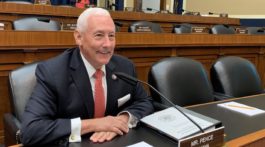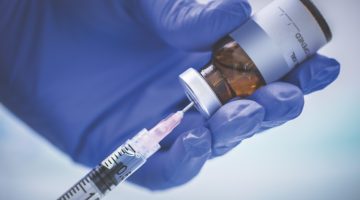State officials have declared a public health emergency for Madison County, which they say will allow the county health department to establish a syringe exchange program for the purposes of reducing the spread of Hepatitis C.
State Health Commissioner Dr. Jerome Adams says the decision came after Madison County officials submitted a detailed analysis of their Hepatitis C epidemic and their plan to combat it.
Earlier this year, Senate Enrolled Act 461, authored by Senator Patricia Miller, sponsored by Representative Ed Clere, and signed into law by Governor Mike Pence, made syringe exchange programs legal in Indiana for the first time, under certain circumstances. The law lays out a set of procedural and substantive requirements that local communities must meet in order for an emergency declaration to be considered by the state health commissioner.
Steps in the process for local communities:
* Local health officer declares
o Epidemic of Hep-C or HIV
o Primarily transmitted through IV drug use
o A syringe exchange program is medically appropriate as part of a comprehensive response
* County Commissioners act
o Hold a public hearing
o Take official action adopting the declarations of the local health officer (above)
o Describe other actions taken regarding the epidemic that have proven ineffective
o Request a public health emergency declaration
The Indiana State Department of Health received Madison County’s request on Wednesday, June 17. Madison County is the second county in which a public health emergency has been declared. Dr. Adams declared Indiana’s first public health emergency in Scott County in May.
By declaring this public health emergency, the state health commissioner concurs with the declarations of the local health officer and county commissioners. By law, specific aspects of design and implementation of the program are left to local officials. No federal or state funding is provided for syringe exchange programs.











